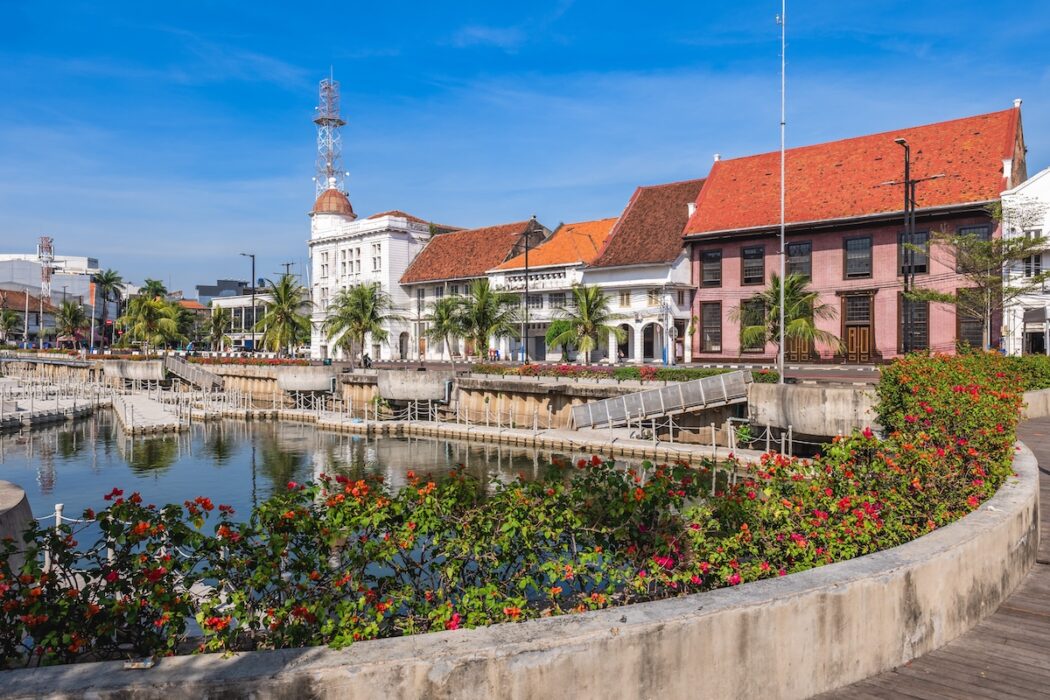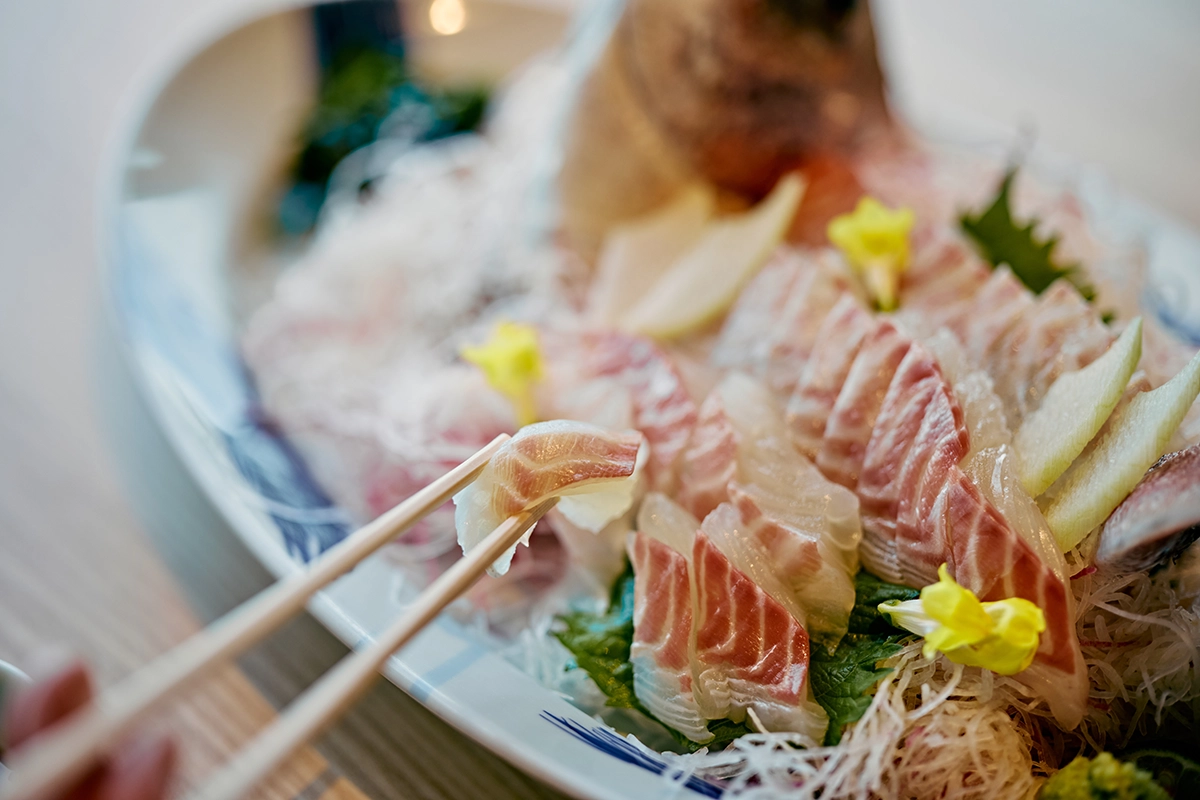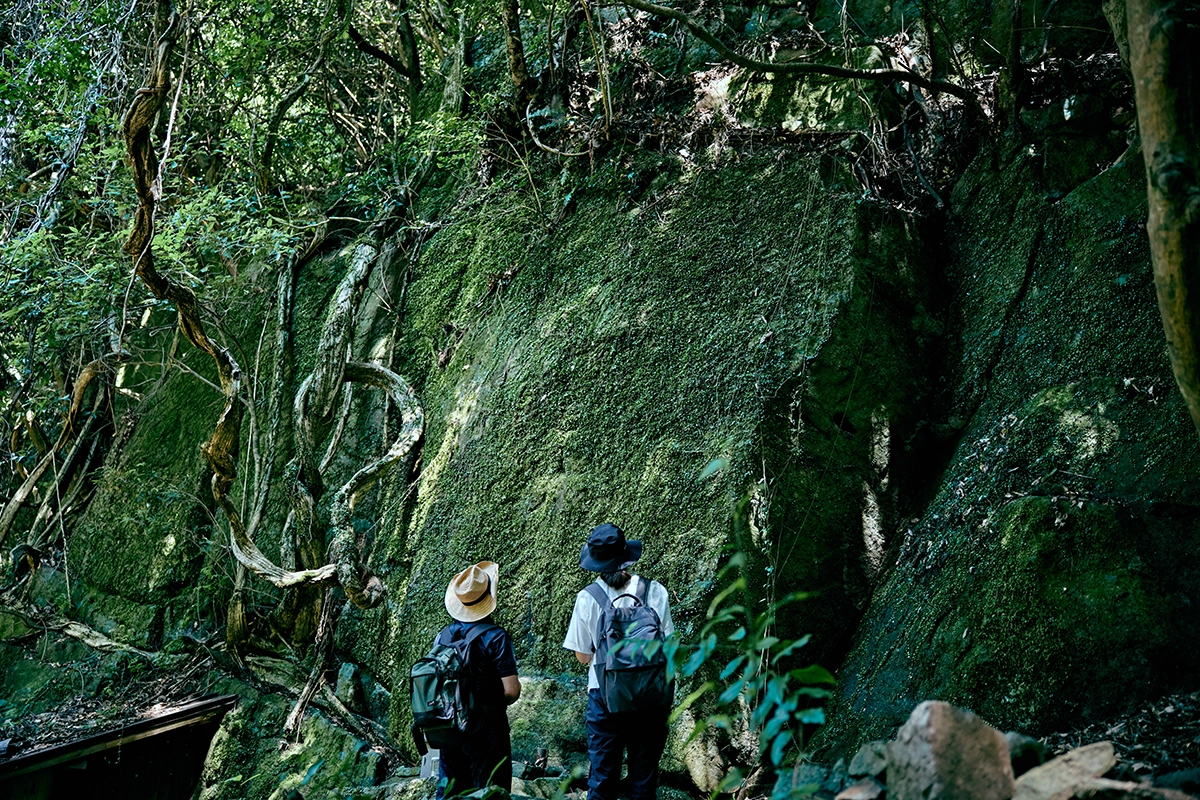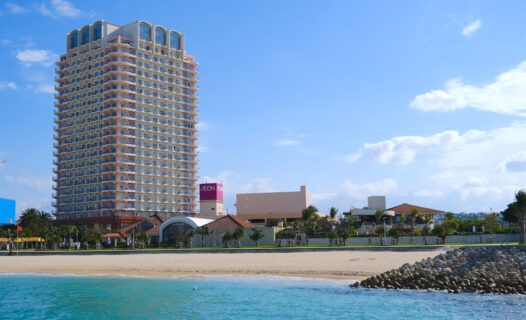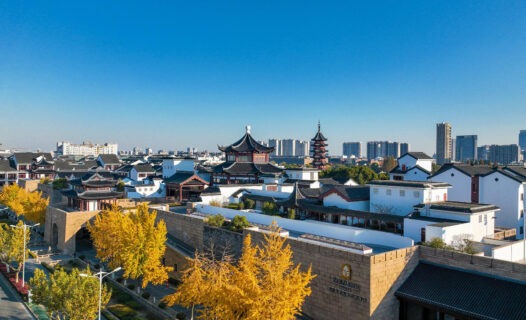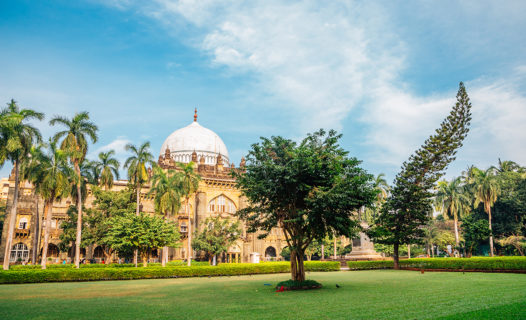Introduction
Welcome to the delightful culinary world of Indonesia, where every dish tells a story and every festival is a celebration of flavor! Indonesia’s rich culinary landscape is a vibrant tapestry woven from the diverse cultures, traditions, and histories of its many islands. From the spicy sambals of Java to the savory rendangs of Sumatra, the country offers a feast for the senses that is as varied as its stunning landscapes.
Food festivals play a pivotal role in preserving traditional Indonesian dishes, offering locals and travelers alike the chance to experience authentic flavors in a lively atmosphere. These festivals are not just about food; they are a cultural experience, showcasing the artistry and passion that go into Indonesian cuisine. Imagine strolling through bustling markets filled with aromatic spices, vibrant colors, and the laughter of people sharing their culinary heritage. Each region boasts its own unique flavors, influenced by local ingredients and cultural practices, making every bite a delightful adventure.
As you explore the culinary scene of Indonesia, prepare to embark on a journey that tantalizes your taste buds and enriches your understanding of this incredible nation. Whether you’re a seasoned foodie or a curious traveler, the traditional dishes and festive celebrations of Indonesia promise an unforgettable experience!
Discovering Indonesian Cuisine: A Melting Pot of Flavors
Indonesian cuisine is a delightful fusion of flavors, drawing influences from various cultures, including Chinese, Indian, Arab, and European. This melting pot of culinary traditions results in a rich tapestry of dishes that are as diverse as the archipelago itself. Key ingredients like rice, spices, and fresh produce form the backbone of many traditional Indonesian dishes, making each meal a celebration of local bounty.
Spices are the stars of Indonesian cooking, with a plethora of aromatic ingredients like turmeric, ginger, lemongrass, and chili peppers taking center stage. These spices not only enhance the flavors but also reflect the cultural significance of food in Indonesian society. From the iconic Nasi Goreng (fried rice) to the succulent Sate (skewered meat), each dish is a testament to the culinary artistry that defines Indonesian food.
As you explore the culinary landscape, don’t miss out on the opportunity to savor Delightful Indonesian Cuisine: Must-Try Dishes. This guide will introduce you to the authentic flavors that make Indonesian food a true delight!
Festivals of Flavor: Celebrating Indonesian Food Culture
Food festivals in Indonesia are a joyous celebration of culinary heritage, bringing together local chefs, food enthusiasts, and curious travelers. Among the most famous is the Ubud Food Festival, held annually in Bali. This vibrant event showcases the best of Indonesian cuisine through cooking demonstrations, workshops, and delectable tastings. Another highlight is the Jakarta Culinary Festival, where the capital’s culinary scene shines, featuring a variety of street food, gourmet dishes, and cultural performances.
These festivals not only promote local culinary heritage but also foster a sense of community and pride among participants. They provide a platform for chefs to showcase their creativity and for visitors to discover the rich flavors and traditions of Indonesian food. With live music, cooking competitions, and endless food stalls, the atmosphere is electric, making it a must-visit for anyone looking to immerse themselves in Indonesian culture.
Curious to learn more about these exciting events? Check out Explore Indonesia’s Culinary Festivals for an insider’s look at the best food festivals across the archipelago!
A Culinary Calendar: When to Experience Indonesian Food Festivals
Mark your calendars, food lovers! Indonesia is a treasure trove of food festivals throughout the year, each offering a unique taste of the archipelago’s culinary heritage. Here’s a quick guide to the must-visit festivals, along with their highlights:
January – Festival of Nasi Goreng
Kicking off the year, this festival celebrates Indonesia’s beloved fried rice. Held in various locations, it features cooking competitions, tastings, and workshops. Don’t miss the chance to try different variations of Nasi Goreng from across the islands!
April – Ubud Food Festival
Taking place in Bali, this vibrant festival is a must-visit for any food enthusiast. With renowned chefs showcasing their culinary skills, you can enjoy cooking demos, food tastings, and even live music. Sample everything from traditional dishes to modern fusion cuisine!
August – Jakarta Culinary Festival
As the capital’s culinary scene shines, this festival brings together the best street food vendors and gourmet restaurants. Enjoy a week-long celebration filled with street food tours, cooking classes, and cultural performances. It’s the perfect opportunity to explore the diverse flavors of Jakarta!
September – Festival of Padang Cuisine
Celebrate the rich flavors of West Sumatra at this festival dedicated to Padang food. Sample dishes like Rendang and Ikan Bakar while learning about the unique cooking techniques of this region. Make sure to try the spicy sambal that accompanies many dishes!
November – Bali Vegan Festival
This festival is a haven for plant-based foodies! Featuring a wide array of vegan dishes from Indonesian and international cuisines, you’ll find cooking classes, workshops, and talks on sustainable living. It’s a delicious way to explore healthy eating while enjoying the beautiful Bali scenery.
With so many festivals to choose from, there’s no excuse not to indulge in Indonesia’s culinary delights! For specific opening and closing hours, be sure to check local listings closer to the dates. Ready to plan your food adventure? Explore Bali’s Food Festivals for more insights!
Must-Try Traditional Dishes: A Culinary Adventure Awaits
What’s a food festival without indulging in some iconic Indonesian dishes? Here’s a list of traditional favorites that you simply cannot miss:
Nasi Goreng
This famous fried rice dish is a staple across Indonesia. Often served with fried eggs, chicken, and a side of pickled vegetables, it’s the perfect comfort food. You’ll find countless variations at food festivals, each with its own twist!
Sate
Skewered and grilled to perfection, Sate is a must-try. The meat is marinated with a blend of spices and served with a rich peanut sauce. Look out for different types of Sate from various regions, including chicken, beef, and even tofu options!
Rendang
This slow-cooked beef dish, originating from West Sumatra, is packed with flavor. Cooked in coconut milk and a mix of spices, it’s often described as one of the most delicious dishes in the world. Be sure to try it at the Festival of Padang Cuisine!
Ikan Bakar
Grilled fish, or Ikan Bakar, is a popular dish, especially in coastal areas. Marinated with spices and grilled over charcoal, it’s typically served with sambal and rice. Perfect for seafood lovers!
These dishes are just the tip of the iceberg! Each festival will have stalls showcasing these traditional delights, so come hungry and ready to explore! For more information on where to find these dishes, check out Best Indonesian Food in Jakarta.
Regional Indonesian Dishes: A Taste of Diversity
As you travel through Indonesia, you’ll discover that each region boasts its own culinary specialties. Here’s a quick overview of some regional highlights:
Balinese Cuisine
Known for its bold flavors, Balinese cuisine features dishes like Bebek Betutu (slow-cooked duck) and Lawar (a traditional salad). Balinese food festivals often highlight these dishes, making them a must-try!
Javanese Food
Sweet and savory flavors define Javanese cuisine. Dishes like Gudeg (young jackfruit stew) and Ayam Penyet (smashed fried chicken) are local favorites. Be sure to sample these at festivals in Java!
Padang Food
Known for its array of spicy dishes, Padang cuisine features a variety of side dishes served with rice. Rendang is just one of the many delicious offerings. Festivals dedicated to this cuisine will leave your taste buds tingling!
Exploring these regional dishes is a delicious way to appreciate Indonesia’s culinary diversity. For a deeper dive into Jakarta’s food scene, don’t miss Savor Jakarta.
Culinary Deep Dive: Ingredients and Cooking Techniques
Indonesian cuisine is all about fresh ingredients and vibrant flavors. Let’s take a closer look at some key ingredients and cooking techniques that make these dishes so special:
Indonesian Spices
Spices are the heart of Indonesian cooking. Turmeric, ginger, garlic, and chili are just a few staples that add depth and flavor to dishes. Don’t hesitate to ask local chefs about their favorite spice blends during festivals!
Coconut Milk
This creamy ingredient is often used in soups and curries, lending a rich flavor to dishes like Rendang and Gulai (curry). You’ll find coconut milk being used in many festival dishes!
Grilling Techniques
Grilling is a popular cooking method in Indonesia, especially for fish and meats. Look for Ikan Bakar stalls at food festivals, where you can watch chefs skillfully grill fresh seafood over open flames.
Understanding these ingredients and techniques can enhance your culinary experience in Indonesia. For more on local cooking classes, check out Top Spots for Indonesian Food Delights in Jakarta.
Engaging with Local Chefs: Cooking Workshops and Demonstrations
Want to take your culinary experience to the next level? Many food festivals offer cooking workshops where you can learn from local chefs. Here’s how to get involved:
Participate in Workshops
Look for hands-on cooking classes during festivals. These workshops often focus on traditional dishes and provide insights into local cooking techniques. It’s a fun way to immerse yourself in Indonesian culture!
Attend Cooking Demonstrations
Many festivals feature live cooking demonstrations. Watch as chefs prepare signature dishes, and don’t be shy about asking questions! You might even pick up a few tips to take home.
Engaging with local chefs is a fantastic way to deepen your appreciation for Indonesian cuisine. Ready to learn more? Check out A Culinary Journey Through Tangerang.
Practical Information for Travelers: Tips for Enjoying Indonesian Food Festivals
Now that you’re excited about Indonesian food festivals, here are some essential tips to make the most of your experience:
What to Bring
Comfortable shoes are a must! You’ll be doing a lot of walking, so make sure you’re prepared. Also, consider bringing a reusable water bottle to stay hydrated while exploring the festival.
Interacting with Vendors
Don’t be afraid to chat with vendors! They love sharing their culinary stories and recommendations. Plus, trying new dishes is part of the adventure. Just remember to be respectful and patient, especially during busy times.
For more tips on street food and market etiquette, check out Top Street Food Festivals in Bali.
Fun Facts About Indonesian Culinary Traditions
Did you know that Indonesian food is not just about taste? It’s steeped in history and culture! Here are some fun facts to impress your fellow foodies:
- Rice is Life: In Indonesia, rice is considered a staple food and is often referred to as “the soul of the meal.”
- Spice Trade: Indonesia was once the center of the spice trade, attracting traders from all over the world.
- Festivals as Rituals: Many food festivals are tied to local traditions and rituals, making them a unique cultural experience.
These tidbits add a rich layer to your culinary journey through Indonesia. For more intriguing insights, keep exploring the local food scene!
Transportation and Accessibility: Getting to Food Festivals
Getting to food festivals in Indonesia is a breeze with various transportation options available. Here’s how you can reach your culinary destinations:
Public Transport
Many cities offer reliable public transport, including buses and trains. In Jakarta, the TransJakarta bus service is a convenient way to get around. In Bali, consider using local bemos (minivans) to reach festival locations.
Taxis and Ride-Sharing
For a more direct route, taxis and ride-sharing apps like Grab are widely available. They can take you right to the festival entrance, making it easy to jump from one food stall to another!
Planning your transport in advance can save you time and energy, so you can focus on enjoying all the delicious food! For more travel tips, check out Explore Indonesia’s Culinary Festivals.
Seasonal Travel Insights: Best Times to Visit for Food Lovers
Timing can make all the difference in your culinary adventure. Here are some seasonal insights to help you plan your trip:
Dry Season (April – October)
This is the best time to enjoy outdoor food festivals, as the weather is typically dry and sunny. Many festivals are scheduled during this period, allowing you to explore without worrying about rain!
Wet Season (November – March)
While it may rain more during these months, some festivals still take place. Just be prepared for occasional downpours and look for indoor venues where you can savor delicious dishes without getting wet!
Choosing the right season can enhance your festival experience. Ready to explore? Book your stay through Agoda for the best accommodations during your culinary adventure!
Safety and Health Guidelines: Enjoying Indonesian Food Safely
While indulging in street food and festival offerings, keeping safety in mind is essential. Here are some tips to enjoy your culinary journey without worry:
Choose Busy Stalls
Opt for food stalls that are busy—this usually indicates freshness and popularity. Locals flock to the best spots, so follow their lead!
Stay Hydrated
Drink plenty of bottled water, especially if you’re trying spicy dishes. Staying hydrated is key to enjoying all the flavors Indonesia has to offer.
For more on safe eating practices, check out Discover the Best Indonesian Food in Jakarta.
Commonly Asked Questions (FAQs) About Indonesian Food Festivals
Curious about Indonesian food festivals? Here are some frequently asked questions to help you prepare for your culinary adventure:
What types of food can I expect at festivals?
Expect a wide variety of traditional Indonesian dishes, street food, and regional specialties. Each festival showcases local flavors, so there’s always something new to try!
Are food festivals family-friendly?
Absolutely! Most festivals are suitable for families, with plenty of options for kids and fun activities to keep everyone entertained.
How do I find out about upcoming food festivals?
Check local tourism websites or social media pages for the latest festival announcements. Many cities also have dedicated food festival calendars.
With all this information at your fingertips, you’re ready to explore Indonesia’s culinary festivals like a pro!
Now that you’re equipped with all the knowledge you need, it’s time to hit the road and taste the incredible flavors of Indonesia. Don’t forget to book your accommodations through Agoda for a hassle-free travel experience!

